Jun 26, 2025
Author:Jackson Watson
Our cats are not just hairballs in our house, but they are part of our family. We share our home and our spirits—and sometimes our germs.
Every cat owner has thought to themselves right before they sneeze when they're feeling under the weather, 'Can humans get cats sick?' The simple answer is, yes, you can. So, if cats get sick from humans, it is a valid question for responsible pet owners.
It is essential to be aware of transference so that we can effectively protect our cats. The risk for your cat to catch every sneeze you have is low, but some organisms are more dexterous in crossing the species hurdle than others.
Knowing which illnesses pose a threat and advice to lessen that risk is important when protecting our cats.
Many of us realise that animals are capable of spreading zoonotic diseases to humans. There are rabies from bites or salmonella from handling reptiles.
However, the route for germs is not always one-way. We ask, can cats catch human illnesses? Yes, they can. When a human pathogen can infect an animal, it is termed reverse zoonosis.
There are risks for reverse zoonosis. The risk of reverse zoonosis depends on several factors:
1. Some bacteria and viruses are extremely host-specific, specific enough to only infect people or cats. Most bacterial and viral pathogens can be host-specific or more flexible and infect additional hosts.
2. Sometimes, kittens and older cats, as well as those with Feline Immunodeficiency Virus or Feline Leukemia Virus, suffer from serious illnesses just like people with health problems.
3. If humans are closer to the cat, by kissing, cuddling, or eating with them, it increases the chances of the cat getting sick.
4. Someone who is very symptomatic and shedding a lot of specific viruses/bacteria puts the cat at a high risk for transmission.
Can cats get viruses from humans like the flu? Yes. This is the most publicized example of humans' transfer of a disease to cats. The H1N1 (swine flu) strain of the virus has been reported in cats. Symptoms of flu in cats can look like flu symptoms in humans:
● Sneezing
● Coughing
● Fever
● Lethargy
● Loss of appetite
● Runny nose or eyes
The CDC has reported cases of H1N1 in humans and cats.

Those who catch the Streptococcus pyogenes bacteria can develop strep throat. Some reports show that cats may act as strep germ carriers, especially if strep infections happen frequently in the home.
Cats do not usually get this bacteria, but they can pass it on to other animals or human members of the family.
Although other staph infections usually respond to antibiotics, MRSA is tough to treat in this way. Sometimes, MRSA will be found living on a person’s skin or in the area around their mouth. When someone with MRSA touches a cat, kisses it, or lets it sleep close by, the infection might spread to the animal.
Sometimes, MRSA in cats leads to skin problems, the formation of abscesses, and occasionally general systemic infections. Keeping yourself clean and staying apart as much as possible when you have the infection are very important.
Although contaminated dishes and raw meat are the main ways, cats may also get salmonella and E. coli if their owners fail to maintain good hygiene.
Always remember to wash your hands well after leaving the bathroom or touching uncooked items, so the bacteria cannot be passed on to your pets.
If a cat is sick, you may notice he or she lets out vomit, passes loose bowel movements, and seems very tired. Infants and senior cats may develop major complications if they get some of these infections.
The fungus ringworm causes symptoms on the skin and moves easily from humans to animals or from animals to humans. A cat may get ringworm if the person with the infection pets, uses towels, blankets, or any furniture where the animal rests.
Some cats with allergies can have bald patches, dry and scaly fur, and groom themselves much more than usual. Pets and humans can be cured from ringworm, but it might take weeks of care before they are better.
Giardia can be transferred between human hosts and cats, usually through faecal-oral contamination.
Think about common situations. If you have a common cold, then the chance of your cat becoming infected with that specific cold virus is just about zero.
When you are feeling a bit off, the question, 'Can my cat get sick from me?' becomes relevant. The only reason we ask this question is because when we are coughing, sneezing, and not feeling well.
This is especially true if you have confirmed using a laboratory test (such as a kennel cough/flu swab) that you are sick with influenza or another known infectious disease that has the potential to infect another species.
If you have been sick, and you are slightly worried that your cat is ill and acting 'off,' pay attention to some general signs of illness:
1. Less or more eating or drinking. One consideration is using an automatic feeder which will give you a considerably better insight into their more recent eating patterns, even if it is difficult to keep track of it accurately yourself.
2. Drowsy, not playing with toys
3. Sneezing, coughing, wheezing, or nasal and eye discharge.
4. Vomiting or diarrhea.
5. You may notice it feels warmer than normal, so look for cooler places to lie down.
6. In some cases, there is either more grooming or none at all.
7. Become more secretive and irritable.
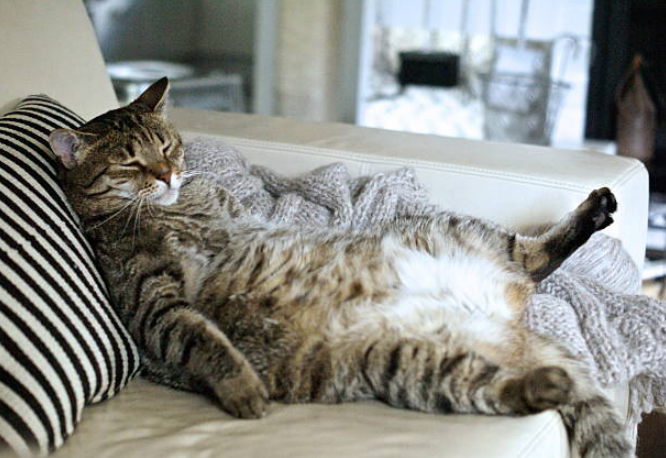
The good thing is that keeping your cat clean and healthy can prevent many illnesses. If you want to know how to avoid your cat getting human diseases, try following these pieces of advice:
1. Washing Your Hands: You should never ignore the importance of hand washing. Follow CDC Guidelines and wash your hands with soap for twenty seconds.
2. Avoid Face Licking with Your Cat: Prevent your cat from coming close to your face when you are ill.
3. Cover Coughs and Sneezes: While coughing or sneezing, remember to cover your nose or mouth using a tissue. When you are finished, get rid of the used tissue and wash your hands.
4. Don't Share Food/Food Utensils: Don’t share food or your eating utensils with your cat, and make sure she does not lick your belongings when you are sick.
5. Keep your Cat's environment clean: Regularly wash and disinfect your cat’s water and food bowls—Wopet F01 Stainless Steel Cat Bowl is easy to clean, which ensures your cat feeds in a clean place.
6. Scoop their litter box regularly and maintain litter changes.
7. Isolate if possible (and necessary): If you have a diagnosed illness that is transmissible to cats (such as H1N1 flu), try to minimise close contact with them.
8. Enhance their general health: A healthy cat with a good immune system function will be better able to deal with possible infections.
9. Ensure high-quality nutrition. For more information, you may find value in our blog post on 'Choosing the Right Cat Food for Your Feline Friend'.
10. Ensure access to fresh water.
These preventative options are your best defence while you are considering whether cats can get viruses from humans or other pathogens.
If you are unwell and notice your cat becoming unwell, it is advisable to contact your veterinarian and let them know that you've been ill, what the symptoms were (or are), and if you had a diagnosis. They will use that knowledge to guide them to the best course of action for your cat.
And don't be concerned only if you are ill. Early diagnosis and case outcomes, if uated promptly, can address an issue with your cat.
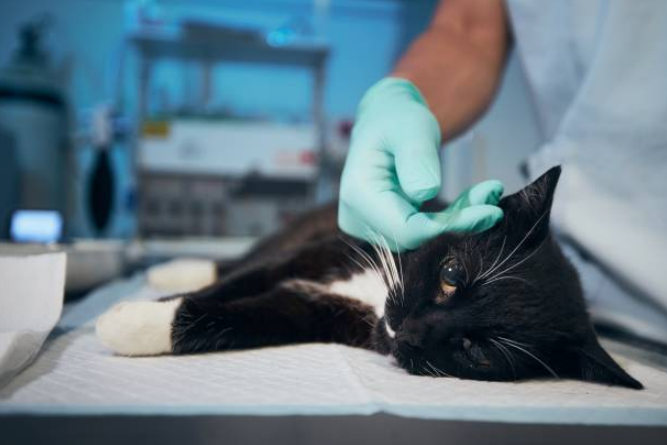
Wondering, 'Can humans get cats sick?' demonstrates a lot of concern for our feline family members. Luckily, we know that the chance of passing along most standard human illnesses to your cat is pretty low, but considering the potential, practising good hygiene is important.
Hopefully, by realising that cats can get sick from humans and taking smart precautions, especially if you are under the weather, your bond with your cats will be a healthy and pleasurable one.
Your care and conscientiousness will help ensure your furry friend is purring right along with you for many years to come.
Label:
Popular Post

What to Feed a Sick Dog With No Appetite? [2025 Guide]
May 16, 2023
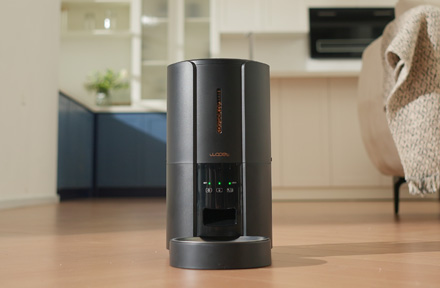
Troubleshooting Common Issues with Automatic Pet Feeders: Tips & Tricks for Pet Owners
Oct 26, 2023

Why Does My Cat Cough After Drinking Water? 8 Potential Reasons
Mar 13, 2023
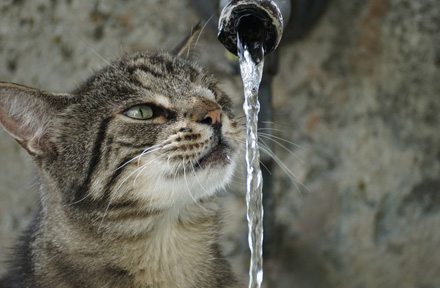
Why is My Cat Throwing up Water? Top 5 Causes Here
Feb 08, 2023
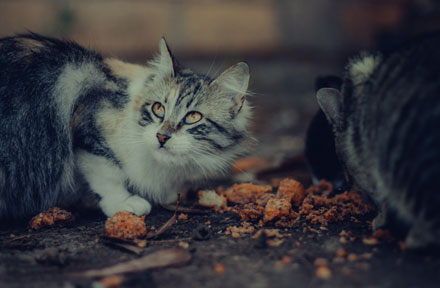
My Cat Only Eats A Little at A Time - What to Do?
Feb 27, 2023
$99.99
$129.99
Copyright © 2025 WOPET. All Rights Reserved.